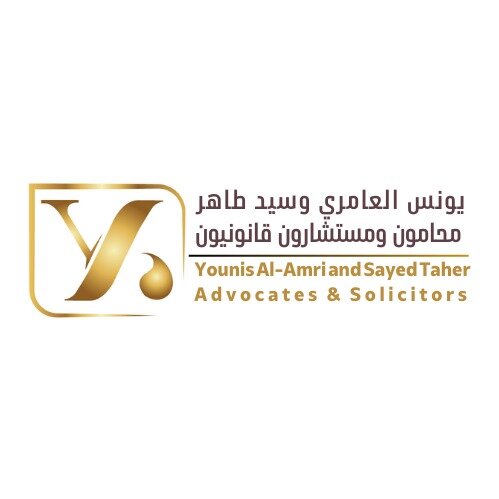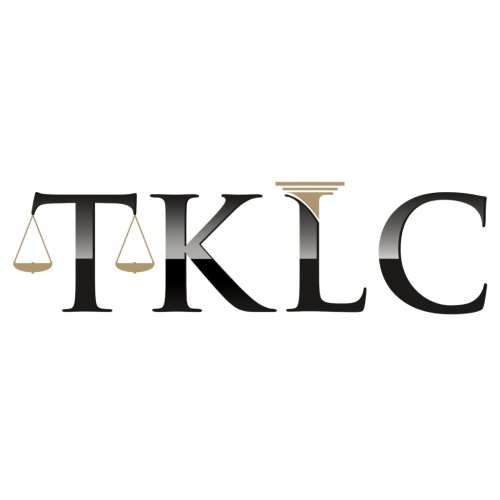Best Tax Lawyers in Muscat
Share your needs with us, get contacted by law firms.
Free. Takes 2 min.
List of the best lawyers in Muscat, Oman
About Tax Law in Muscat, Oman
Tax law in Muscat, Oman is governed by the Income Tax Law, which sets out the rules and regulations for individuals and businesses regarding their tax obligations. The tax system in Oman is relatively simple compared to other countries, with a flat rate of 15% for corporate income tax and personal income tax. Understanding these laws and how they apply to your specific situation is crucial to avoid any legal issues.
Why You May Need a Lawyer
There are several situations where you may require the expertise of a lawyer specializing in tax law. These include disputes with tax authorities, complex tax planning for businesses, issues with income tax returns, and ensuring compliance with local tax laws. A lawyer can provide valuable guidance and representation to protect your interests and ensure compliance with all regulations.
Local Laws Overview
Key aspects of local tax laws in Muscat, Oman include the flat rate of 15% for corporate and personal income tax, exemptions for certain types of income, and regulations regarding tax deductions and credits. It is important to be aware of these laws and how they apply to your specific circumstances to avoid any penalties or legal issues.
Frequently Asked Questions
1. What are the tax rates in Muscat, Oman?
The tax rate in Muscat, Oman is a flat rate of 15% for both corporate and personal income tax.
2. Are there any exemptions available under the tax laws in Muscat, Oman?
Yes, there are exemptions available for certain types of income such as dividends and capital gains under the local tax laws.
3. What are the key deductions and credits available under the tax laws in Muscat, Oman?
Key deductions and credits include expenses related to business operations, investments, and donations to approved charitable organizations.
4. What should I do if I have a dispute with the tax authorities in Muscat, Oman?
If you have a dispute with the tax authorities, it is advisable to seek legal representation from a lawyer with expertise in tax law to protect your interests and resolve the issue effectively.
5. How can I ensure compliance with tax laws in Muscat, Oman?
To ensure compliance with tax laws, it is important to keep accurate records of your financial transactions, seek advice from a qualified tax professional, and stay informed about any changes to tax regulations.
6. Can I appeal a tax assessment in Muscat, Oman?
Yes, you have the right to appeal a tax assessment in Muscat, Oman if you believe it is incorrect or unfair. A lawyer specializing in tax law can help you navigate the appeals process.
7. What are the penalties for non-compliance with tax laws in Muscat, Oman?
Penalties for non-compliance with tax laws in Muscat, Oman can include fines, interest charges, and other sanctions imposed by the tax authorities. It is important to be aware of your tax obligations and seek legal advice if you are facing any issues.
8. Are there any tax incentives available for businesses in Muscat, Oman?
Yes, there are tax incentives available for businesses in Muscat, Oman, such as exemptions for certain types of income and deductions for eligible business expenses. A lawyer specializing in tax law can help you take advantage of these incentives.
9. How can I minimize my tax liability in Muscat, Oman?
To minimize your tax liability in Muscat, Oman, it is advisable to engage in tax planning strategies, take advantage of available deductions and credits, and seek advice from a qualified tax professional to optimize your tax situation.
10. What are the key differences between personal and corporate tax laws in Muscat, Oman?
The key difference between personal and corporate tax laws in Muscat, Oman is the flat rate of 15% that applies to both types of income. However, there may be exemptions and deductions available that vary depending on whether you are an individual or a business entity.
Additional Resources
For additional information on tax laws in Muscat, Oman, you can visit the website of the Tax Authority of Oman or consult with a reputable law firm specializing in tax law. These resources can provide valuable insights and guidance to help you navigate the complexities of tax regulations in Oman.
Next Steps
If you require legal assistance with tax matters in Muscat, Oman, it is advisable to seek the expertise of a qualified lawyer specializing in tax law. A lawyer can provide you with tailored advice, representation in disputes with tax authorities, and assistance with tax planning to ensure compliance with local regulations and minimize your tax liability.
Lawzana helps you find the best lawyers and law firms in Muscat through a curated and pre-screened list of qualified legal professionals. Our platform offers rankings and detailed profiles of attorneys and law firms, allowing you to compare based on practice areas, including Tax, experience, and client feedback.
Each profile includes a description of the firm's areas of practice, client reviews, team members and partners, year of establishment, spoken languages, office locations, contact information, social media presence, and any published articles or resources. Most firms on our platform speak English and are experienced in both local and international legal matters.
Get a quote from top-rated law firms in Muscat, Oman — quickly, securely, and without unnecessary hassle.
Disclaimer:
The information provided on this page is for general informational purposes only and does not constitute legal advice. While we strive to ensure the accuracy and relevance of the content, legal information may change over time, and interpretations of the law can vary. You should always consult with a qualified legal professional for advice specific to your situation.
We disclaim all liability for actions taken or not taken based on the content of this page. If you believe any information is incorrect or outdated, please contact us, and we will review and update it where appropriate.

















